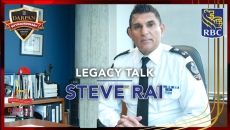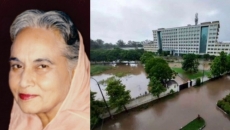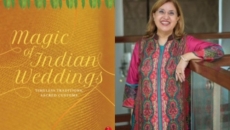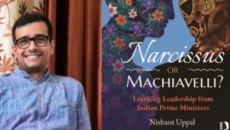1. What inspired you to make the move to Canada, and how has your journey been so far?
Moving to Canada was inspired by the desire for better opportunities, a higher quality of life, and a safe environment. The country's diversity and welcoming nature were major factors in my decision. My journey thus far has been transformative, marked by challenges and achievements that have contributed to my personal and professional growth. Adapting to the new culture has been a very rewarding experience, and I am grateful for the opportunity to build a fulfilling life here in Canada.
2.Where did you first stay when you arrived in Canada? Was it a hotel, or did you stay with relatives or friends?
Upon arriving in Toronto, I was warmly received by a college friend who picked me up from the airport, arranged accommodation near his home, and graciously provided me with meals. After a week, I moved to Surrey, where another friend and his family welcomed me. They offered incredible support and hospitality, making me feel at home. I stayed with them for a month, which allowed me to comfortably transition and settle in before moving into my accommodation.
3.How would you describe your experience finding a job in Canada? Did you find it straightforward or challenging?
Securing a job was relatively smooth, thanks to my previous experience. I started my professional journey with ICICI Bank Canada within a month of arriving in Surrey.
4.What were some of the biggest surprises or challenges you faced when you first arrived?
Upon my arrival, I encountered several notable surprises and challenges. One of the biggest surprises was the diversity and cultural richness in my new environment, which exceeded my expectations. On the other hand, adjusting to the different work cultures and understanding local practices posed significant challenges. Navigating the nuances of a new system and integrating it into a different professional landscape required considerable adaptation and learning.
5.How has your experience as an immigrant shaped your view of Canada as a country?
My experience as an immigrant has deepened my appreciation for Canada’s commitment to diversity and inclusion. The country’s robust support systems and high quality of life underscore its dedication to fostering a welcoming environment for newcomers, reinforcing my view of Canada as a leader in promoting multiculturalism and facilitating professional and personal growth.
6.How have you managed to stay connected to your roots while embracing Canadian culture?
I have maintained a connection to my roots by engaging in community activities and upholding traditional practices while embracing Canadian culture by integrating its values and norms into my daily life. This approach allows me to honor my heritage while adapting to and appreciating the diverse Canadian culture.
7.What’s one Canadian custom or tradition you’ve come to love?
I have developed a deep appreciation for the Canadian tradition of Thanksgiving. The focus on gratitude, family gatherings, and community reflections aligns with my values and provides a meaningful occasion to connect with others and acknowledge the positive aspects of life.
8.What do you miss most about your home country, and how do you cope with that?
I miss the proximity of friends and family, whose support and companionship were integral to my daily life. To cope with this, I actively maintain connections through regular communication and virtual interactions. Additionally, I have sought to build new relationships and engage with local communities, which helps to mitigate the sense of distance and fosters a sense of belonging in my new environment.
9.If you could go back in time, would you do anything differently about your immigration journey? Why or why not?
If I were to undertake this immigration journey again, I would focus on gaining a more in-depth understanding of the cultural and logistical aspects involved. This would include additional research and preparation to address potential challenges more effectively and to facilitate a smoother integration process. While the experience has mainly been positive, these adjustments could optimize the overall transition and enhance my adaptation to this new environment.
10.How do you see the future for yourself and your family in Canada? What are your hopes and aspirations?
I envision a future in Canada where both my family and I achieve continued professional growth and personal fulfillment. My goal is to advance in my career while contributing, providing a stable and enriching environment to my family, and fully integrating into Canadian society.
Proudest Moment in Canada:
Making significant progress in my professional career while seamlessly adapting to a new cultural context, demonstrating resilience, contribution to my industry, and successful integration into Canadian society.
Advice for Immigrants:
Actively engage in the local community and seek networking and professional development opportunities. Building connections, and understanding the local culture and professional landscape are crucial. Additionally, always maintain self-belief and exercise patience throughout the process.






